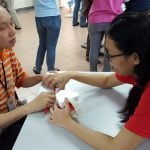An IMU Masters of Science in Medical and Health Sciences (By Research) student, Aniqah Zulfa Binti Abdul Latif, was a member of an expedition to the Antarctic Peninsula for her research to assess the effects of ultraviolet radiation (UVR) on Chlorella, which is a group of widely distributed algae. The Malaysian Scientific Expedition to Antarctica 2016, which was held from 25 till 31 January 2016, was organised by Sultan Mizan Antarctic Research Foundation (YPASM). It was the first independent scientific expedition to Antarctica organised by the Ministry of Science, Technology and Innovation (MOSTI), Malaysia. Eight students from five Malaysian universities, namely IMU, Universiti Sains Malaysia (USM), Universiti Malaya (UM), Universiti Malaysia Terengganu (UMT), and Universiti Teknologi MARA (UiTM) joined this expedition.  Aniqah is working on her MSc project titled “Assessing the effects of UV radiation on cell proliferation, oxidative stress and antioxidant enzyme activities of Chlorella isolates from different latitudes” under the supervision of Prof Chu Wan Loy, Dean of the IMU’s School of Postgraduate Studies, and Dr Wong Chiew Yen, a Lecturer under the Medical Biotechnology programme. Ozone layer plays an important role in absorbing biologically harmful ultraviolet radiation (UVR) coming from the sun. Since the discovery of stratospheric ozone hole near the Antarctic in the mid-1980s, there have been concerns over the significant increase in the penetration of harmful UVR to the Earth’s surface. Drastic changes in the global environment, especially global warming and thinning of ozone layers have caused an increase of temperature and UVR level. These environmental changes can have adverse impacts on organisms especially algae in the Antarctic. Algae plays a pivotal role in the ecosystems as they form food and energy base for all organisms living in lakes, ponds, streams and sea. They provide 75% of oxygen content in the atmosphere. Therefore, any effect on algal population may have an important impact on the whole ecosystem, and this may ultimately impact on human well-beings.
Aniqah is working on her MSc project titled “Assessing the effects of UV radiation on cell proliferation, oxidative stress and antioxidant enzyme activities of Chlorella isolates from different latitudes” under the supervision of Prof Chu Wan Loy, Dean of the IMU’s School of Postgraduate Studies, and Dr Wong Chiew Yen, a Lecturer under the Medical Biotechnology programme. Ozone layer plays an important role in absorbing biologically harmful ultraviolet radiation (UVR) coming from the sun. Since the discovery of stratospheric ozone hole near the Antarctic in the mid-1980s, there have been concerns over the significant increase in the penetration of harmful UVR to the Earth’s surface. Drastic changes in the global environment, especially global warming and thinning of ozone layers have caused an increase of temperature and UVR level. These environmental changes can have adverse impacts on organisms especially algae in the Antarctic. Algae plays a pivotal role in the ecosystems as they form food and energy base for all organisms living in lakes, ponds, streams and sea. They provide 75% of oxygen content in the atmosphere. Therefore, any effect on algal population may have an important impact on the whole ecosystem, and this may ultimately impact on human well-beings. 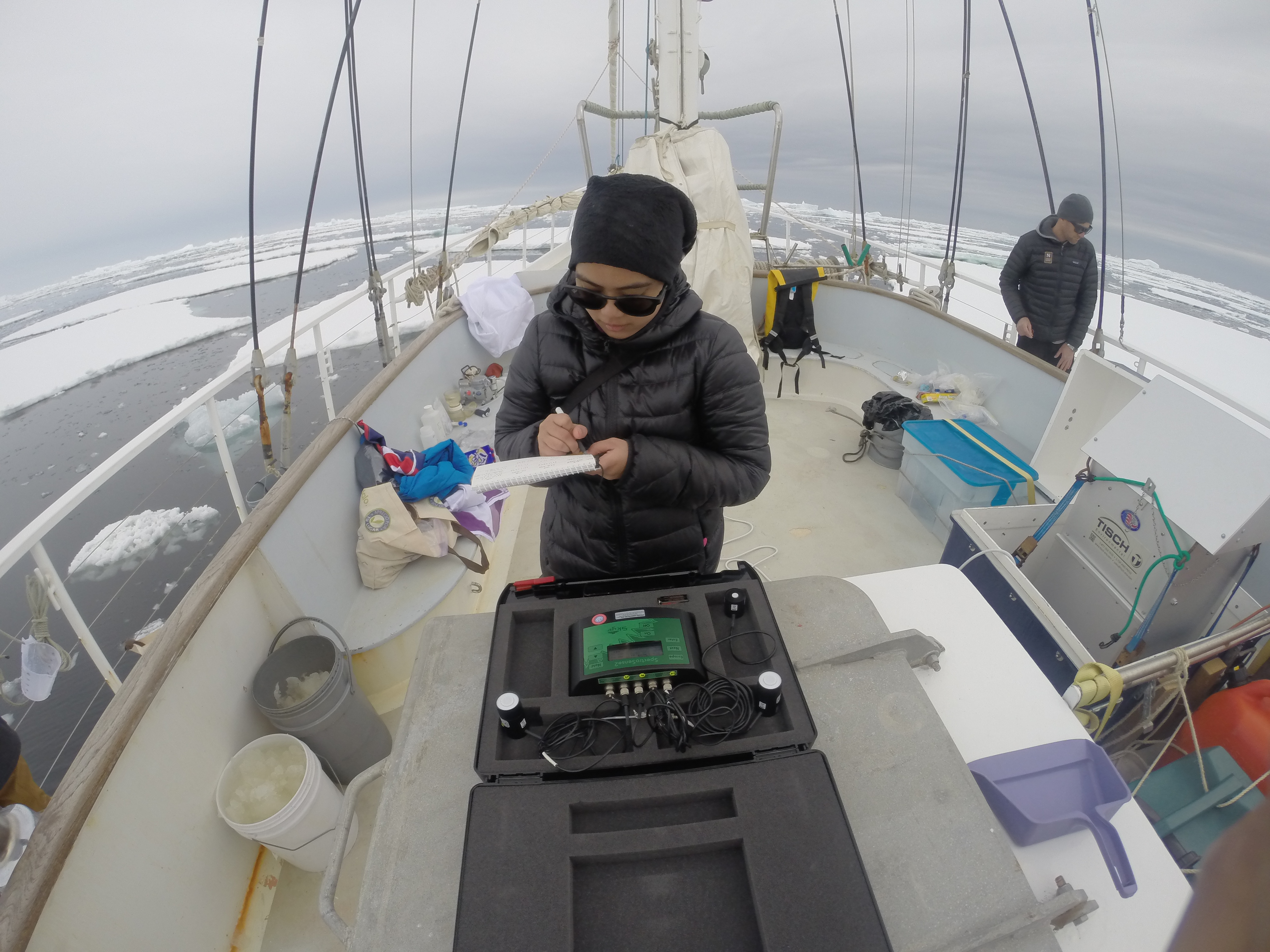
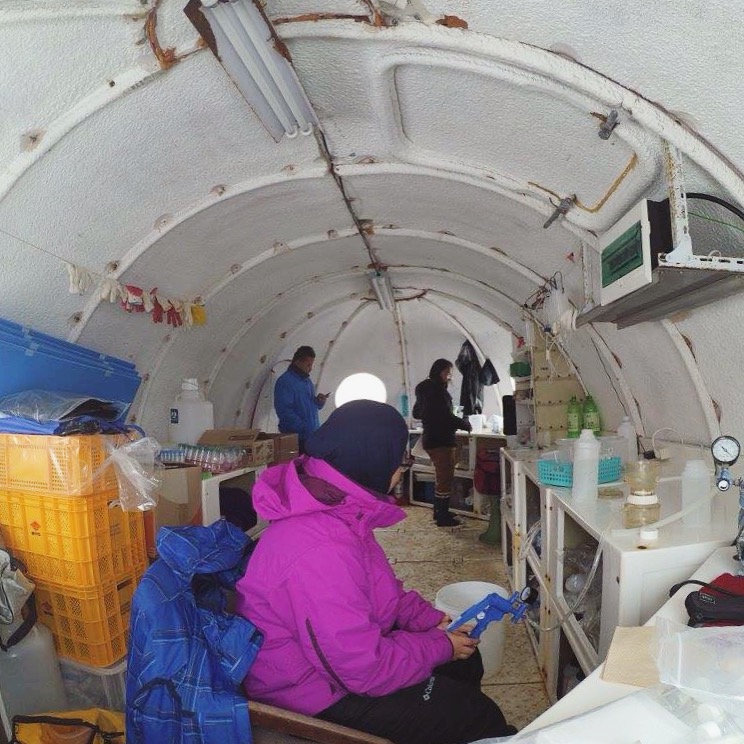
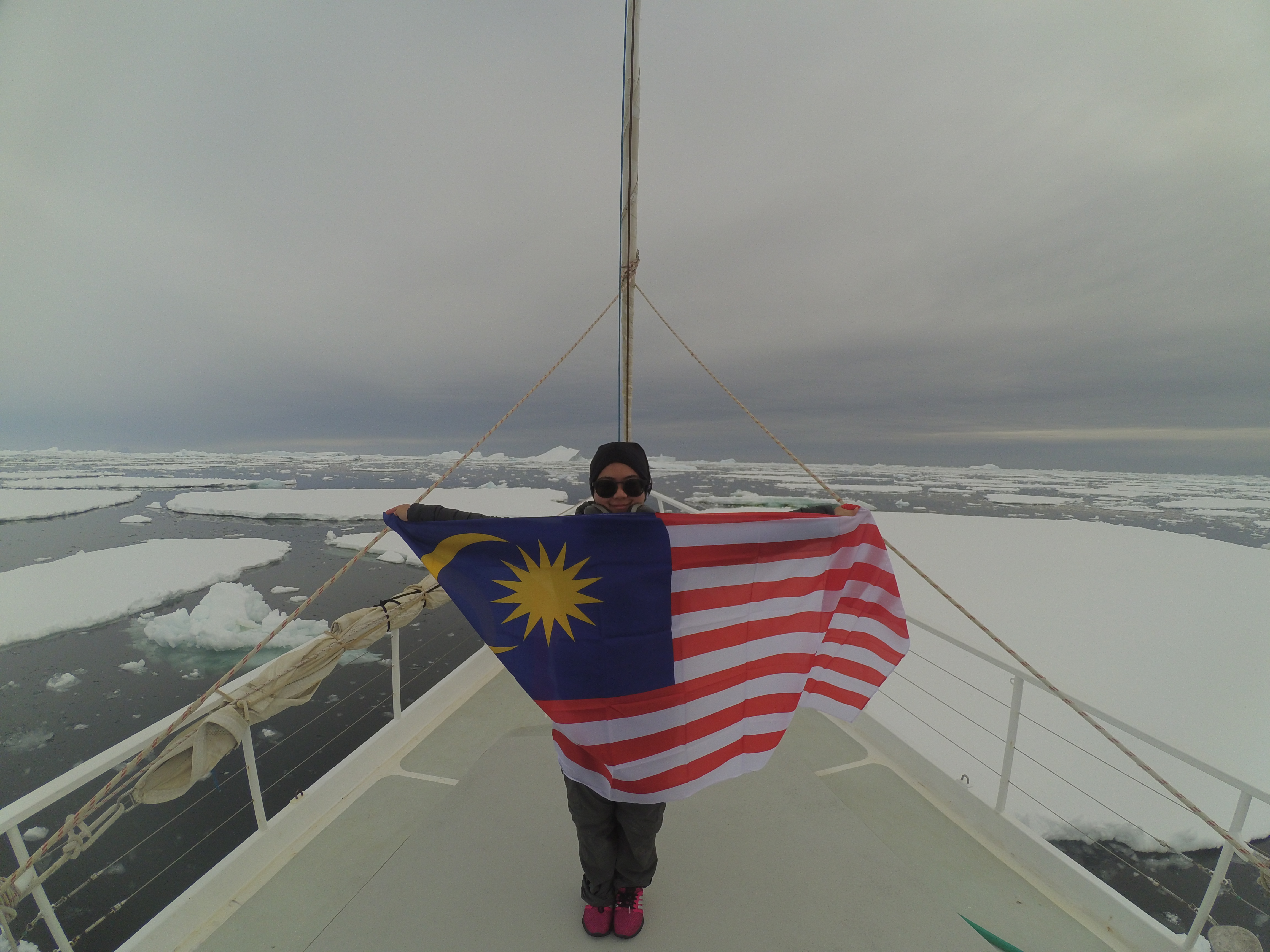 Aniqah joined the expedition with the main aim of collecting samples for the isolation of algae. Soil samples were collected along the Antarctic Peninsula, from King George Island (62°S, 59°W) all the way down to Darboux Island (65°S, 64°W). The Antarctic Peninsula has attracted much interest amongst scientists as it is the ‘hotspot’ for research on global warming. The samples were collected at eight different latitudes along the Antarctic Peninsula, including Deception Island, a volcanic island. The collection sites include the coastline regions, exposed rocks, snow banks and moist soil. The collection of algae will be useful for the ongoing study on the physiological and genomic responses of algae to climate change.
Aniqah joined the expedition with the main aim of collecting samples for the isolation of algae. Soil samples were collected along the Antarctic Peninsula, from King George Island (62°S, 59°W) all the way down to Darboux Island (65°S, 64°W). The Antarctic Peninsula has attracted much interest amongst scientists as it is the ‘hotspot’ for research on global warming. The samples were collected at eight different latitudes along the Antarctic Peninsula, including Deception Island, a volcanic island. The collection sites include the coastline regions, exposed rocks, snow banks and moist soil. The collection of algae will be useful for the ongoing study on the physiological and genomic responses of algae to climate change. 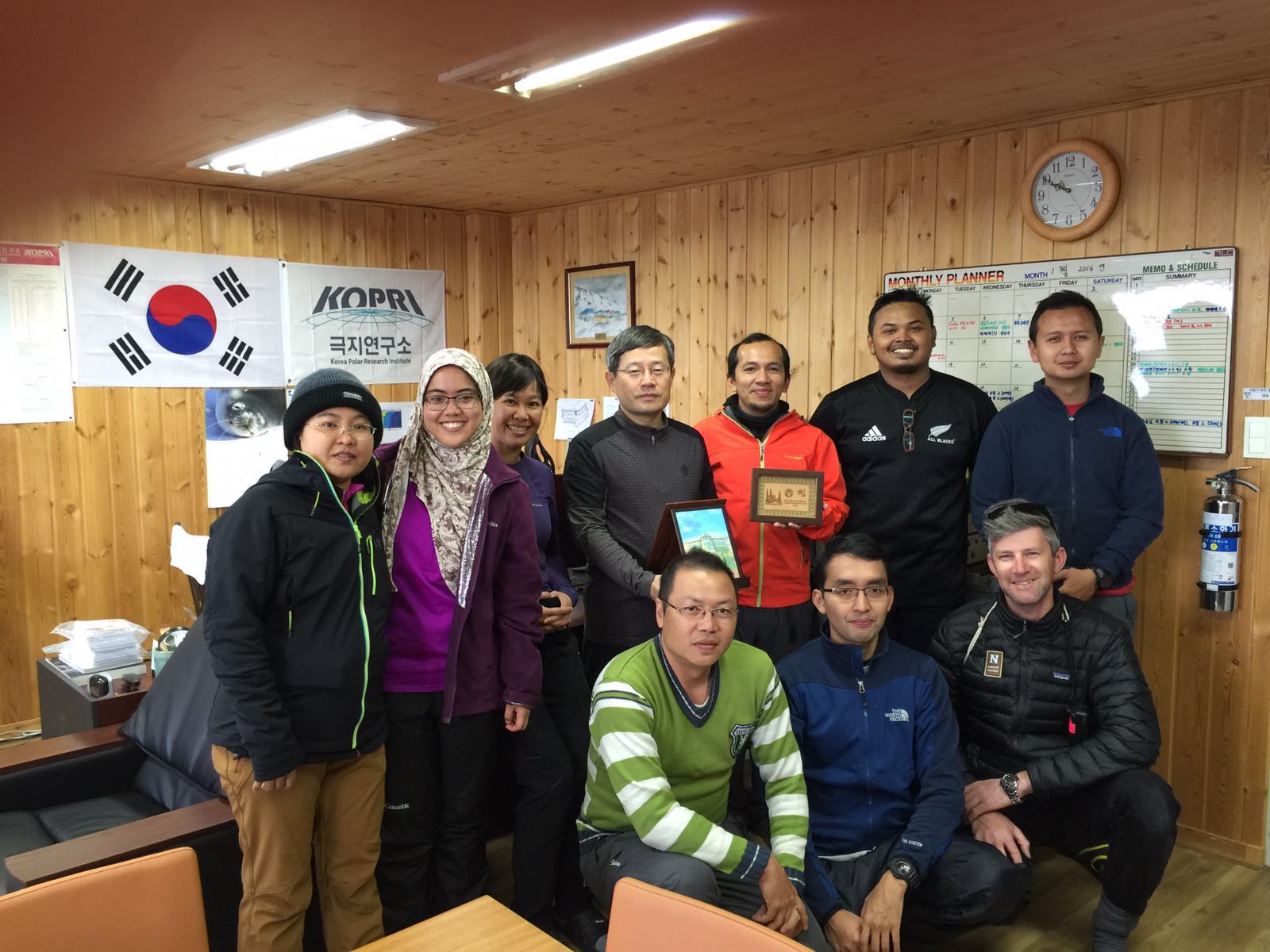
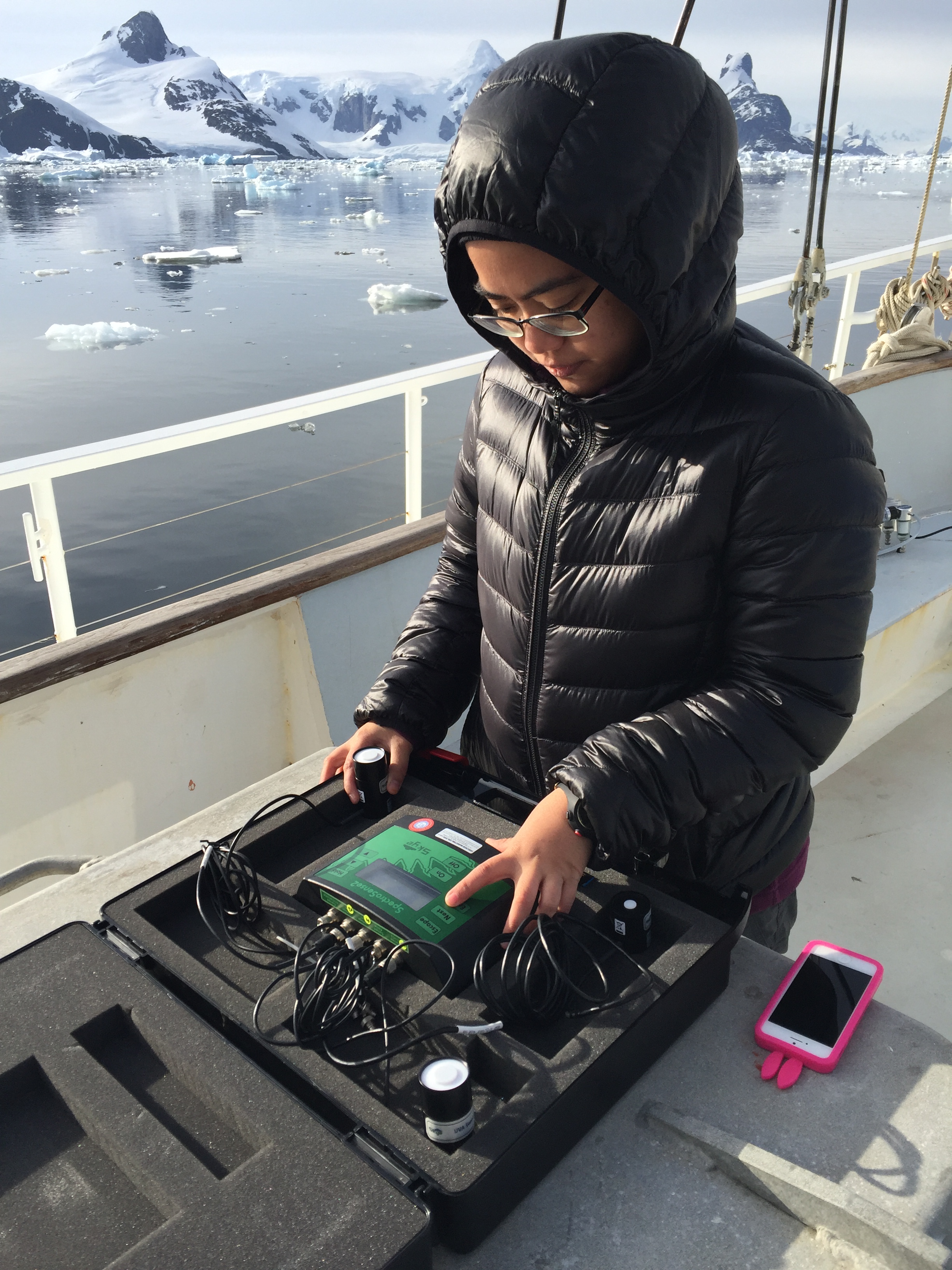
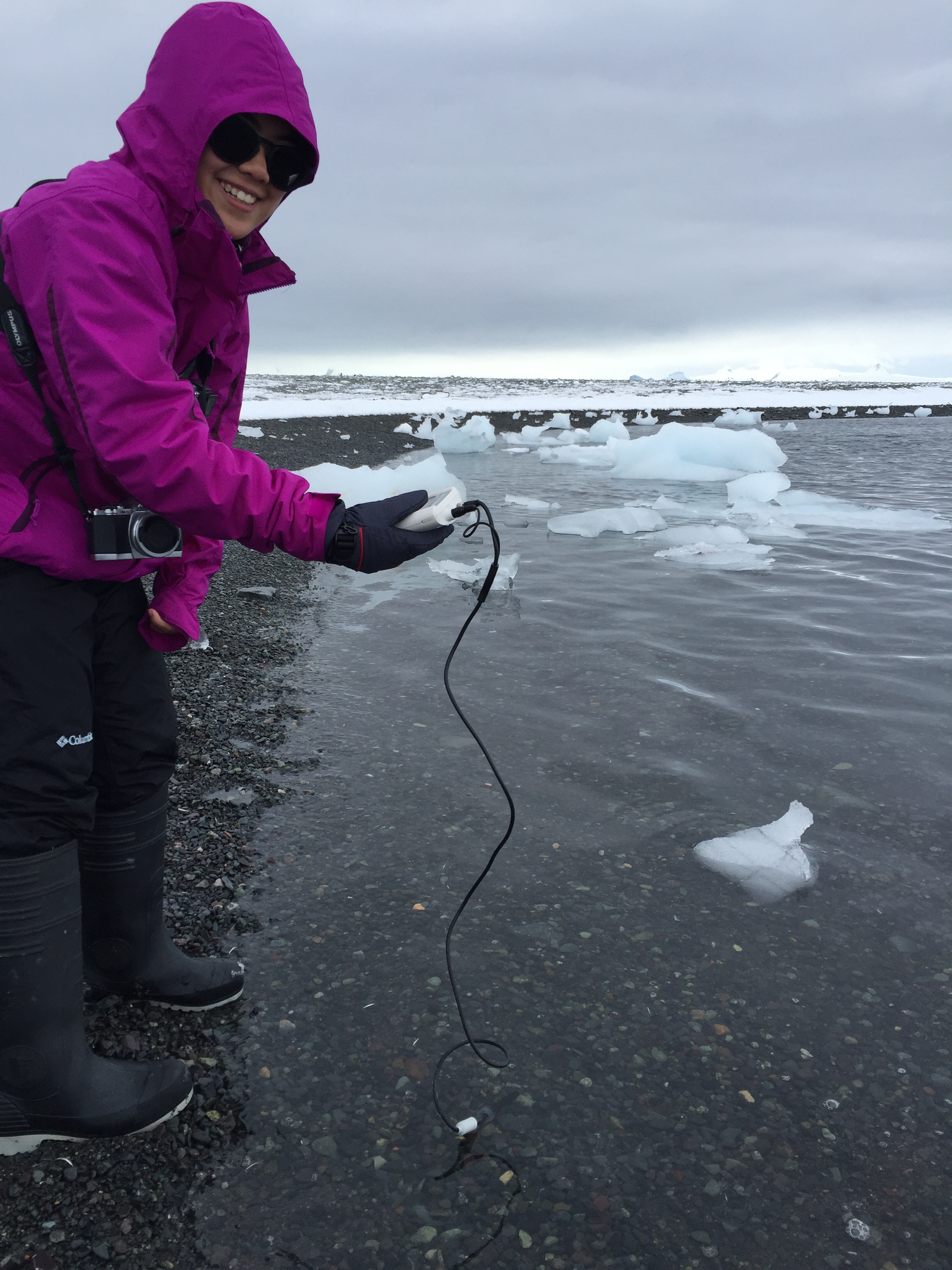 Aniqah’s study will contribute tremendously to the understanding of how algae from the Antarctic, tropical, and temperate regions respond to global warming and increased UVR.
Aniqah’s study will contribute tremendously to the understanding of how algae from the Antarctic, tropical, and temperate regions respond to global warming and increased UVR.





